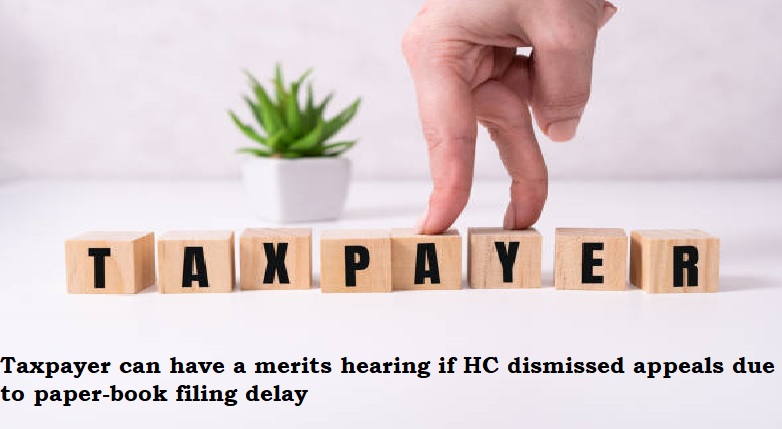


In setting aside the orders of the Rajasthan High Court, the Supreme Court reinstated the appellant's appeals, citing a condonation of the delay in filing the paper-book before the High Court. Justices P.S. Narasimha and Aravind Kumar, of the Division Bench, emphasized the appellant's entitlement to a hearing on merits.
The background of the case involves the assessment year 2001-02, where the Assessing Officer (AO) disallowed interest in the assessment order. Both the Commissioner of Income Tax (Appeals) [CIT(A)] and the Income Tax Appellate Tribunal (ITAT) upheld this decision. On appeal, the High Court directed the assessee to submit the paper-book within 15 days, warning that failure to do so would result in dismissal without further consideration. Subsequently, as the paper-book wasn't filed within the stipulated time, the Registrar dismissed the appeal. The High Court, in turn, rejected the application for the restoration of the appeal, and even the review against this decision faced dismissal.
The Division Bench noted that Appeal No. 817 of 2008 for the assessment year 2001-02 was dismissed due to the non-filing of the paper-book within the prescribed time. The High Court, deeming inconsistent orders unacceptable, then proceeded to dismiss Appeal No. 816 of 2008 without delving into the merits of the case. The Bench expressed the opinion that the appellant should be granted a hearing on the merits of the appeals.
In response to the High Court's stance that inconsistent orders couldn't be issued for the assessment year 2002-03, it also dismissed the appeal without a thorough examination of the matter on its merits.
The Bench highlighted that had the High Court considered the appeals for both assessment years together, it might have condoned the delay in filing the paper-books for the assessment year 2001-02. Consequently, the Supreme Court allowed the assessee's appeal and directed the High Court to take up the appeals for both years jointly. The High Court was instructed to provide an opportunity to the concerned parties for a comprehensive adjudication and determination on the merits of the case.
This legal development underscores the significance of procedural compliance and the need for consistent and thorough examination of appeals on their merits. The Supreme Court's intervention in restoring the appeals reflects its commitment to ensuring a fair and just resolution in line with the principles of natural justice. The directive to consider both assessment years together aims to prevent potential inconsistencies and ensures a comprehensive review of the case, allowing for a more equitable and informed decision-making process.
TAGS: Supreme Court Rajasthan High Court assessee's appeals condoning delay paper-book filing Division Bench Justice P.S. Narasimha